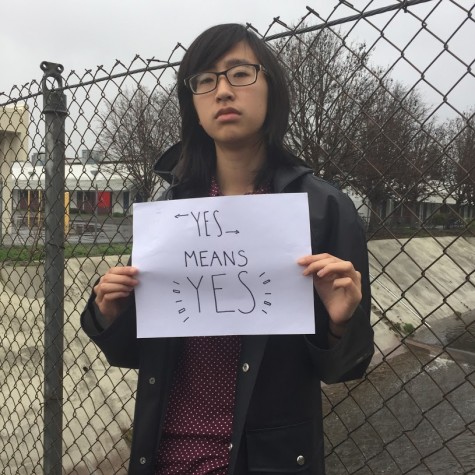Yes Means Yes: California’s Consent Classes
Healthy communication builds healthy relationships—whether it is in regards to friendships, love, family, or coworkers. Being able to explain your feelings to one another and working through problems through words, without huge complications, is important. That seems like a straightforward concept.

Consent also seems like a straightforward concept. You ask someone before doing something that can affect them—such as asking your parents if you can go to a friend’s house or a classmate to borrow a pencil—and they give you a response. Similarly, people ask each other if they want to have sex, and a response is given. But for some reason, the response is never taken into full consideration or acted upon. Society has not taught people, in a classroom setting, the decisive signs of “yes” and “no,” and how to carry out healthy communication until now. On October 1st of 2015, California became the first state in the nation to pass a law requiring high school lessons on sexual consent. Yes Means Yes became in effect as of January 1st of this year.
According to World Magazine, these consent lesson promotes “affirmative consent or yes means yes” and “the importance of open communication during sexual encounters.” The bill defines sexual consent as partners participating in “affirmative, conscious, and voluntary agreement” at any moment. Though sexual education classes teach students about safe sex, these new lessons will delve into strong communication and possible situations students may encounter in college or in the workforce. For example, students may want to check out the party scene at their new university and could find themselves in uncharted situations involving drugs, alcohol, and strangers. Though people may have a certain set of morals and conduct they live by, it is possible for them to be forced to abandon that in unfamiliar and scary situations. Adulthood is filled with situations that we may hear about but have not necessarily encountered ourselves. The thought of “that won’t happen to me” is common among teenagers, so it is important to have practice and a deeper understanding how of how to handle moments that make us uncomfortable.
The motives behind the Yes Means Yes bill are clear: to prevent sexual assault on college campuses and in other post-high school pathways. A co-author of the bill, Senator Kevin de León, explains his stance that it is vital to imprint consensual behavior in our youth so that “we can reduce the sexual violence inflicted on young women.” The frightening truth that sexual abuse cases are a common topic on the news related to college campuses—places with immense knowledge that often champion inclusive environments—haunts many young women. A person’s capacity for intelligence does not necessarily correlate with the actions and behavior they may exhibit. A co-founder of the group End Rape on Campus, Sofia Karasek shared that without steps taken, “more than 100,000 students will be sexually assaulted on college campuses nationwide.”

The drive behind the Yes Means Yes bill is characterized by a ripple effect. If students in all California high schools that adopt this curriculum receive practice with consent and are instilled with a serious outlook on sexual activity, they will graduate and implement safe communication in a college setting. Instead of not knowing what to do when faced with an uncomfortable sexual encounter, students will have that concrete training to fall back on. In addition, other states are more likely to join California in adopting this policy until it is spread throughout the country. That can have a positive impact on so many lives.
The Yes Means Yes bill is a concrete step in the right direction. California lawmakers acknowledged that it is a reality that consensual behavior is not practiced and enclosed their solution through high school health lessons that students have to take in order to graduate. Students, especially young women, will no longer have to be scared to explore their identities and have fun in college. The idea that people may be less likely to experience the crippling psychological and physical effects of rape and sexual abuse in an environment that is supposed to build one’s identity is momentous. The idea that “yes means yes” and “no means no” may someday be an intrinsic part of human behavior and communication can build a sexually positive society.





